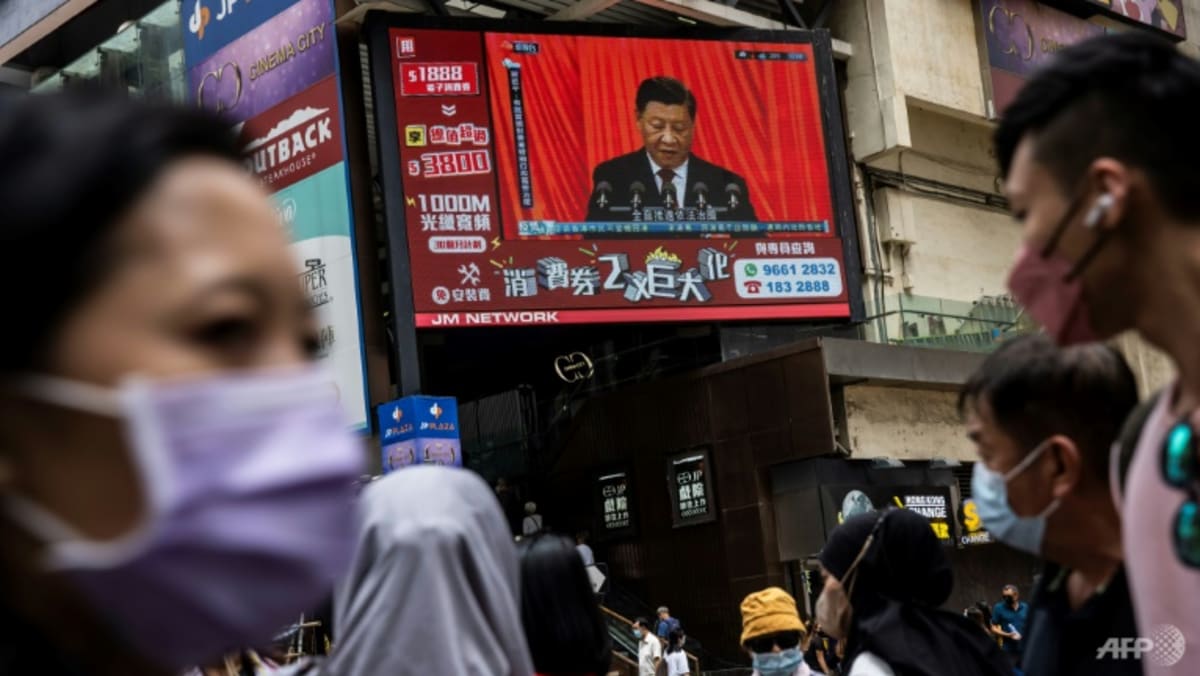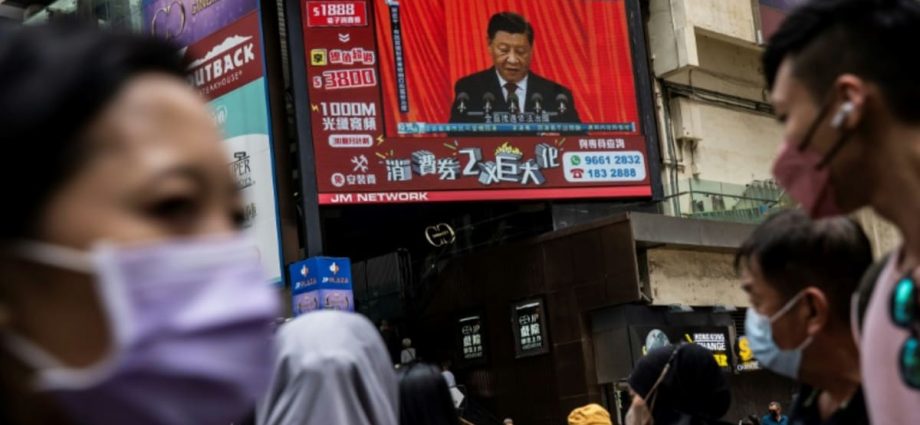
A whole chapter of Xi’s report is devoted to national security. The report calls for “a holistic approach to national security”, which involves coordinating China’s “external and internal security”.
His report also indicates China will not only look after its own security, but also work on “common security”, primarily through the Global Security Initiative raised by Xi in April. This initiative, though still lacking in details, stresses that any state shouldn’t pursue its own security at the expense of other states’ security.
It will likely become China’s new foreign policy framework to take on the US’ Indo-Pacific Strategy, which China believes “aims to contain China and attempts to make Asia-Pacific countries ‘pawns’ of US hegemony”.
Xi’s report also explicitly states China will protect the “legitimate rights and interests” of its “overseas citizens and legal persons”. Linking this with the report’s emphasis on securing China’s industrial chains and supply chains, it’s expected China will make more efforts to extend its protection over state-owned and private entities beyond its physical borders.
As the country was hit hard by COVID in mid-2020, many observers speculated China would gradually cut its economic ties with the external market and seek to be economically self-reliant.
Xi’s report, however, reiterates that China will keep its door open. Echoing Xi’s report, Zhao Chenxin, deputy director of China’s macroeconomic management agency the National Development and Reform Commission, clarified that China isn’t seeking to become a self-sufficient economy.
According to Xi’s report, China also intends to “create new opportunities for the world with its own development”. As China’s development-driven international engagement continues, the Belt and Road Initiative is likely to remain a significant policy platform for China’s foreign relations.
Yu Tao is a Senior Lecturer in Chinese Studies at the University of Western Australia. This commentary first appeared on The Conversation.

